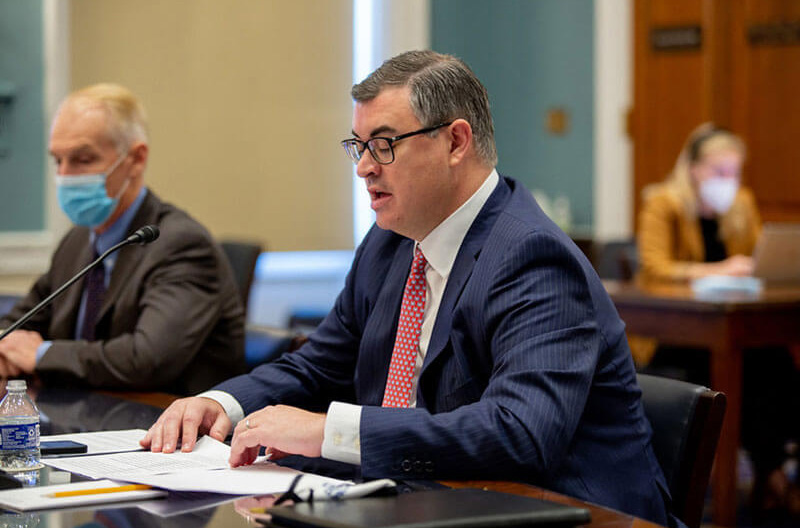National Grocers Association President and CEO Greg Ferrara testified Nov. 3 in front of the full House Agriculture Committee on how supply chain challenges, including the labor shortage and anti-competitive tactics by power buyers in the grocery marketplace, are impacting independent grocers and the communities they serve.
“The greatest risk we face in the market is not the supply chain challenges under discussion today. Rather, the panic buying mindset is what poses the greatest risk to the availability of food and the ability of grocers to keep shelves fully stocked,” Ferrara testified. “As industry and government leaders, we must be responsible spokespeople for the food system and reassure the American public that there is plenty of food to go around.”
There are three central factors contributing most significantly to the current supply chain crunch, Ferrara told the committee: labor availability, transportation bottlenecks and uneven supply due to the rise of power buyers made possible by non-enforcement of antitrust laws such as the Robinson-Patman Act.
“The food industry continues to adapt to a shifting marketplace, but the bottom line is that we must have access to a stable workforce in order to adequately meet the demands of American consumers,” Ferrara said. “The trucking industry faces an acute shortage of truck drivers, a critical cog in the supply chain required to move product along to each step in the food production cycle. The federal government must take actions to increase transportation efficiency and capacity, while maintaining current regulatory flexibilities, such as the Hours of Service waivers, as we see no letup in demand.”
Additionally, Ferrara added, “The pandemic has exposed a growing problem in the food and agriculture sector: market concentration has led to uneven supply. The largest retail power buyers use their immense economic power to pressure suppliers into prioritizing their shipments over other retail customers while extracting concessions on wholesale pricing. As a result, independent grocers have lost access to both popular products and promotional pricing, putting them at a disadvantage when competing with their larger rivals.”
Ferrara’s full testimony can be found here.
A recording of the full committee hearing is available here.
NGA is the national trade association representing the retail and wholesale community grocers that comprise the independent sector of the food distribution industry. An independent retailer is a privately owned or controlled food retail company operating a variety of formats. The independent grocery sector is accountable for about 1.2 percent of the nation’s overall economy and is responsible for generating more than $250 billion in sales, 1.1 million jobs, $39 billion in wages and $36 billion in taxes.
NGA members include retail and wholesale grocers located in every congressional district across the country, as well as state grocers’ associations, manufacturers and service suppliers. For more information about NGA, visit nationalgrocers.org.

